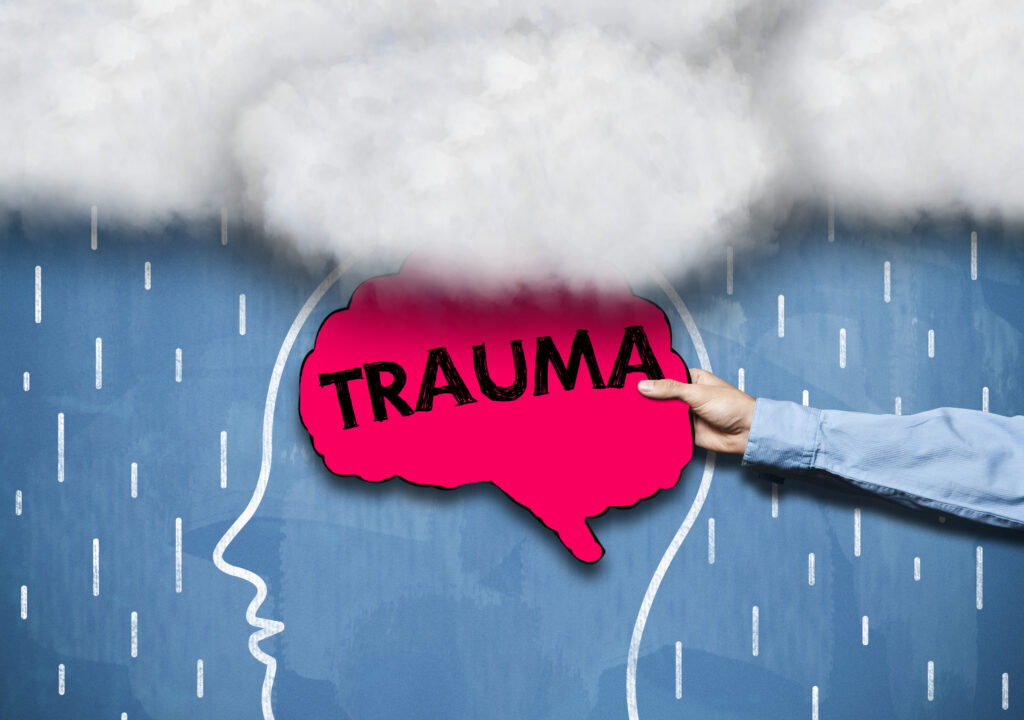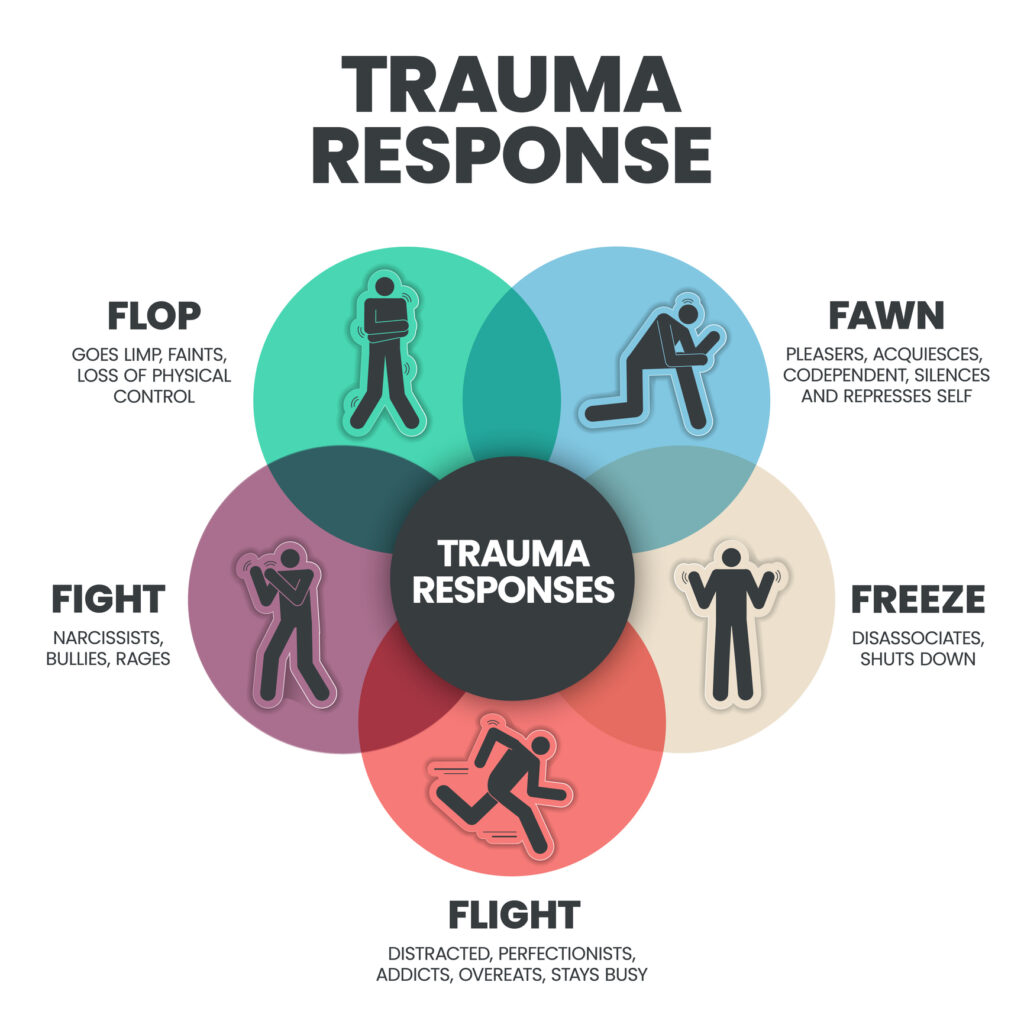
Beyond PTSD: Understanding Complex Trauma
Complex trauma is something that develops when a person faces repeated harm or neglect over many months, sometimes years. It sometimes makes everyday situations feel
Did you have a difficult childhood and find that it continues to affect your relationships today?
Was there a betrayal or tragic loss you endured and haven’t recovered from?
Have you experienced physical, emotional, or sexual abuse and feel you have never been the same because of it?
Did you witness something terrible happening to a loved one or someone you know and, even though a lot of time has passed, you can’t seem to get it out of your mind?
When you’ve experienced a traumatic event whether it be major or seemingly minor, it leaves an imprint in mind and your body which feels impossible to shake. You may find yourself plagued by recurring thoughts or memories that intrude into your daily life. You might avoid reminders associated with the event which may include people, places, or situations. It might be difficult for you to relax because you are constantly in a state of high alert.

The impact of trauma is often significant and can lead to a range of difficulties throughout your life. These difficulties can include emotional and behavioral problems, difficulties in forming and maintaining relationships (getting into one unhealthy relationship after another or, conversely, avoiding relationships), academic (difficulty concentrating in school), occupational challenges (not being able to work or barely able to function at work), substance abuse, and mental health disorders such as depression, anxiety, and post-traumatic stress disorder (PTSD).
It is important to note that not all individuals who experience trauma will necessarily develop long-term problems. Factors such as the severity and duration of the trauma, the presence of support systems, individual resilience, and access to appropriate interventions and therapies can influence an individual’s ability to cope with and recover from trauma.




Due to fear, shame, stigma, or a desire to avoid reliving the trauma, many people do not openly disclose their traumatic experiences. As a result, the pervasiveness of trauma is downplayed and underestimated.
The secrecy surrounding trauma also leads to many myths and misconceptions. Addressing these myths is crucial for fostering understanding.
Myth: Trauma is always extreme or catastrophic. One common myth is that trauma only results from major or big events. In reality, trauma can result from a wide range of experiences which includes not only major life-threatening events but also more subtle or chronic stressors. These can include losing a job, a bad relationship break-up, being picked on and made fun of by peers, or an experience of discrimination such as racism or homophobia.
Myth: Trauma only affects certain people or only applies to certain situations. A common belief I often hear from clients is an assumption that soldiers who have been in military combat are the only group of people who qualify for having trauma or PTSD (Post Traumatic Stress Disorder). The truth is trauma and PTSD can impact anyone in any type of situation, regardless of age, gender, socioeconomic status, or background. Trauma does not discriminate.
Myth: Trauma is always very obvious. Some people believe the effects of trauma are always visible and dramatic. Due to the hidden nature of trauma, many survivors of trauma go on to lead successful and high functioning lives. There is no universally “right” or “wrong” way to respond. Many people struggle with trauma and suffer in silence and no one really knows what they’re going through.
The good news is with the supportive guidance of a therapist, you can heal from trauma and begin to thrive in all aspects of your life.
Each trauma experience is unique and my primary goal is to create a safe and trusting space for my clients as they navigate the challenging journey of recovering from trauma.
There are a number of ways in which psychotherapy can assist in the healing process. When trauma occurs, it is common to become easily overwhelmed. Trauma therapy helps individuals develop coping skills that allow you to mange your emotions more effectively. Additionally, trauma therapy can alleviate symptoms associated with trauma such as flashbacks, nightmares, anxiety, depression, and hypervigilance. Wherever trauma is present, relationships are typically negatively impacted. Trauma therapy helps individuals build healthier relationship patters by addressing trust issues, communication difficulties, and emotional intimacy challenges.
While trauma is undoubtedly challenging, working with a skilled trauma therapist can help facilitate post-traumatic growth where you can emerge from trauma stronger and with an enhanced resilience, well-being, and greater appreciation for life.


It’s perfectly normal and understandable to want to put aside and try to forgot painful memories of the past. There are some traumatic events that do in fact fade over time and you can find yourself relatively easily moving forward from it.
However, there are other traumas that never fade no matter how much time has passed and no matter how much you try to forget. In these instances, the trauma persists and your life, your mental health, and your well-being are negatively impacted and day to day functioning becomes a mighty hurdle. In fact, many clients who decide to try trauma therapy have spent many years trying to bury and forget the past and it hasn’t really worked.
For those individuals, trauma therapy is immensely valuable and effective in helping them release the grip trauma has over their lives and its negative consequences in order to pave the way for a more fulfilling and meaningful life.
It’s completely understandable that the idea of reliving traumatic memories is daunting and scary. I want to assure you that your well-being is a top priority.
In trauma therapy, we will move at a pace that you’re comfortable with. You’re in control of what and how much you share.
Before delving into potentially distressing memories, I will equip you with coping strategies. These tools are designed to help you manage any overwhelming emotions that may arise during our sessions, giving you a sense of control and safety.
It’s also important to know that it is not always necessary to provide explicit details about traumatic events. We can focus on exploring the emotions, thoughts, and impact of these experiences without delving into graphic descriptions if that feels too distressing.
The duration of trauma therapy varies from person to person depending on the nature and severity of the trauma. It’s important to know that healing from trauma is a gradual process and there isn’t one-size-fits-all timeline.
Some individuals may experience significant improvement in a relatively short period while others require more time.
While trauma can be incredibly challenging, it is possible to grow and heal from it.
Trauma does not have to define your life any longer. If you’re ready to begin working with a trauma therapist, I am here to support you. I offer on-line and in person counseling in San Antonio.

Complex trauma is something that develops when a person faces repeated harm or neglect over many months, sometimes years. It sometimes makes everyday situations feel